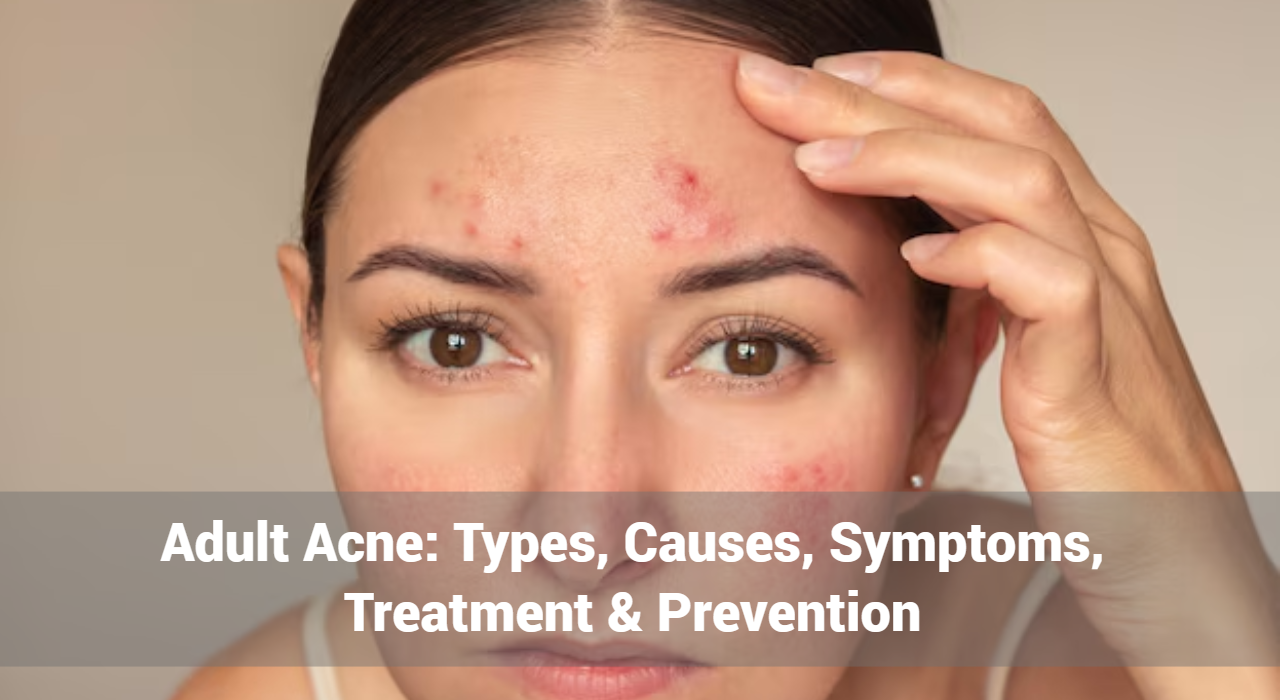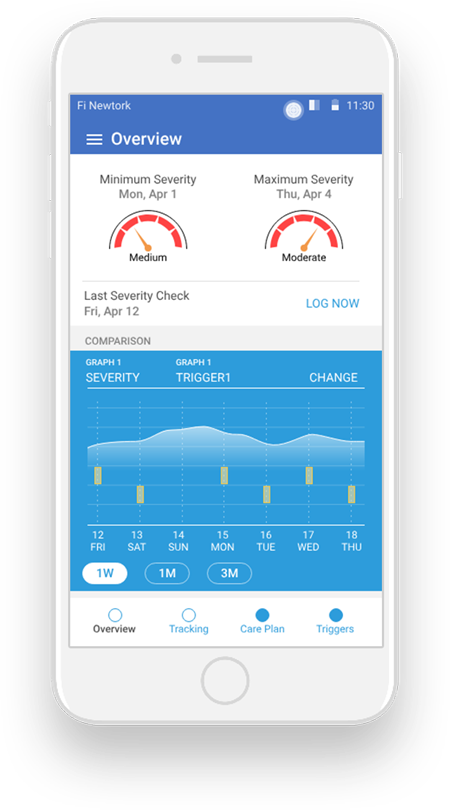Adult Acne: Types, Causes, Symptoms, Treatment & Prevention

Adult acne is a frustrating skin condition that affects many individuals beyond their teenage years. While often associated with puberty, it can persist well into adulthood, impacting self-esteem and overall skin health. In this comprehensive guide, we will explore the types, causes, symptoms, treatment options, and prevention strategies for adult acne.
Understanding Adult Acne
Adult acne refers to acne that appears after the age of 25. It can manifest in various forms, such as pimples, blackheads, and cysts, and can occur on different areas of the body, though it primarily affects the face, neck, and back. Recognizing the specific characteristics of adult acne is essential for effective treatment.
Common Different Types of Adult Acne
- Comedonal Acne: This type includes blackheads and whiteheads. Comedones occur when hair follicles become clogged with oil and dead skin cells.
- Inflammatory Acne: Characterized by red, swollen bumps, this type includes papules and pustules. Inflammatory acne is often more painful and can lead to scarring.
- Nodular Acne: Larger, painful lumps that form deep within the skin. Nodular acne is more severe and requires targeted treatment.
- Cystic Acne: This severe form of acne consists of painful, pus-filled cysts. Cystic acne can lead to significant scarring and often necessitates medical intervention.
Track and Manage your Eczema treatment using a comprehensive Eczema App
Download Eczemaless now
What Causes of Adult Acne?
Understanding the underlying causes of adult acne is crucial for effective management. Some of the most common triggers include:
- Hormonal Fluctuations: Changes in hormones, particularly during menstruation, pregnancy, or menopause, can lead to increased oil production and clogged pores.
- Stress: High-stress levels can trigger hormonal changes that exacerbate acne. Stress leads to increased production of cortisol, which in turn stimulates oil glands.
- Diet: Certain foods, especially those high in sugar and dairy, have been linked to acne flare-ups. A diet rich in processed foods can also contribute to inflammation.
- Medications: Some medications, such as corticosteroids, certain birth control pills, and medications containing lithium, can cause acne as a side effect.
- Skin Care Products: Using heavy, comedogenic products can clog pores. It’s essential to choose non-comedogenic formulations to minimize the risk of breakouts.
- Environmental Factors: Pollution and humidity can contribute to acne by irritating the skin and clogging pores.
What Are The Symptoms of Adult Acne?
Adult acne can present in various forms, and recognizing its symptoms is crucial for effective treatment. Here are the common symptoms associated with adult acne:
- Pimples: Red, inflamed bumps that can be painful. They often have a white or yellow pus-filled center.
- Blackheads: Open comedones that appear dark due to oxidized sebum. They are commonly found on the nose and forehead.
- Whiteheads: Closed comedones that remain beneath the skin’s surface, appearing as small, flesh-colored bumps.
- Cysts: Large, painful lumps filled with pus that form deep within the skin. They can be particularly severe and may lead to scarring.
- Papules: Small, red, raised bumps that are usually tender to the touch. They are often a sign of inflammation.
- Pustules: Similar to pimples but are filled with pus, often appearing red around the base.
- Nodules: Hard, painful lumps that form under the skin. Nodular acne can be severe and requires medical treatment.
- Scarring: Over time, untreated acne can lead to various types of scarring, including pitted or raised scars, which can affect skin texture.
- Hyperpigmentation: Dark spots or discoloration may develop after acne lesions heal, particularly in individuals with darker skin tones.
Recognizing these symptoms early can help in seeking appropriate treatment and minimizing the risk of scarring and further breakouts. If you experience persistent or severe symptoms, it’s advisable to consult a dermatologist.
GET IN CONTROL OF YOUR ECZEMA
Use our AI tool to check the severity of Eczema and keep track of your Eczema progress.
Treatment Options for Adult Acne
Effective treatment for adult acne often requires a combination of approaches tailored to individual needs. Here are some commonly recommended options:
1. Topical Treatments
- Benzoyl Peroxide: Helps kill bacteria and reduce inflammation.
- Salicylic Acid: A beta-hydroxy acid that helps exfoliate the skin and unclog pores.
- Retinoids: Vitamin A derivatives that promote cell turnover and prevent clogged pores. Prescription options are often more effective.
- Antibiotics: Topical antibiotics can reduce bacteria and inflammation in moderate cases.
2. Oral Medications
- Hormonal Therapy: Birth control pills can regulate hormonal fluctuations that lead to acne.
- Antibiotics: Oral antibiotics may be prescribed for moderate to severe inflammatory acne.
- Isotretinoin: A potent medication for severe acne, typically reserved for cases that do not respond to other treatments.
3. Professional Treatments
- Chemical Peels: Help exfoliate the skin and reduce the appearance of scars and active breakouts.
- Laser Therapy: Targets acne lesions and helps reduce inflammation and redness.
- Microneedling: Promotes collagen production to improve skin texture and reduce scars.
Prevention Strategies for Adult Acne
Preventing adult acne requires a multifaceted approach that addresses both skincare and lifestyle factors:
- Consistent Skincare Routine: Use a gentle cleanser twice a day and follow with non-comedogenic moisturizers and treatments.
- Balanced Diet: Focus on a diet rich in fruits, vegetables, and whole grains while minimizing sugar and processed foods.
- Hydration: Drink plenty of water to keep your skin hydrated and support overall health.
- Stress Management: Engage in activities such as yoga, meditation, or regular exercise to help manage stress levels.
- Avoid Picking: Resist the urge to pick at or pop pimples, as this can lead to scarring and further inflammation.
- Regular Dermatologist Visits: Regular check-ups consult a dermatologist can help monitor your skin and adjust treatments as necessary.
Conclusion
Adult acne is a common yet often misunderstood condition. By understanding the types, causes, symptoms, and effective treatment options, individuals can take proactive steps to manage their acne effectively. With the right combination of skincare, lifestyle adjustments, and professional guidance, achieving clear, healthy skin is possible. If you’re struggling with adult acne, don’t hesitate to consult a dermatologist to find the best personalized treatment plan for you. Remember, clear skin is within reach!
Track and Manage your Eczema treatment using a comprehensive Eczema App
Download Eczemaless now



